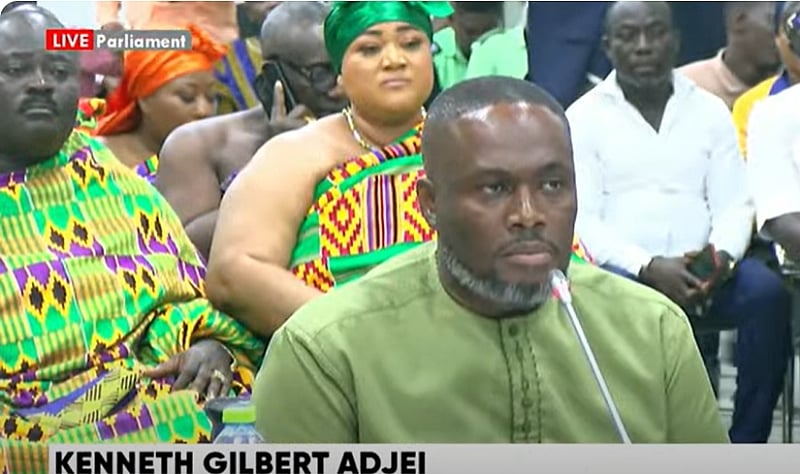The National Tenants Union of Ghana has issued a resounding call for the immediate suspension and comprehensive overhaul of the National Rental Assistance Scheme (NARAS), citing fundamental flaws in its implementation that render it ineffective and exclusionary. In a formal petition addressed to the Minister for Works and Housing, the Union expressed deep concerns about the scheme’s operation since its launch in January 2023, arguing that it has failed to reach the most vulnerable segments of the population while simultaneously violating existing rent laws and imposing unreasonable financial burdens on applicants. The Union’s primary contention is that the scheme’s design has inadvertently marginalized the very individuals it purports to assist.
The Union’s petition highlights the glaring omission of informal sector workers from the scheme’s eligibility criteria. This exclusion, they argue, is a critical oversight, given that informal sector workers constitute a significant portion of the renting population and often face the greatest challenges in securing affordable housing. By focusing on formal employment as a prerequisite for assistance, NARAS effectively bypasses the individuals most in need of rental support, exacerbating existing inequalities and failing to address the core housing challenges faced by a large segment of Ghanaian society. This fundamental flaw in the scheme’s design undermines its intended purpose and necessitates a thorough reassessment of its eligibility criteria to ensure inclusivity and equitable access to rental assistance.
Further compounding the concerns about accessibility is the imposition of a GHC100 non-refundable application fee, which the Union denounces as “extortionist,” particularly for low-income individuals struggling to afford housing. Coupled with a 12% annual interest rate on the two-year rent advance loans provided by the scheme, these financial burdens create significant barriers for potential beneficiaries. The Union argues that these costs negate the intended benefits of the program, effectively pricing out those who are most in need of assistance. This financial burden further reinforces the exclusionary nature of the scheme and necessitates a reevaluation of its financial structure to ensure affordability and accessibility for all.
The Union’s petition also raises serious legal concerns, asserting that the provision of two-year rent advance loans directly contravenes Section 25(5) of the Rent Act, 1963 (Act 220), which restricts rent advances to a maximum of six months. This violation of existing rent laws, the Union argues, not only undermines the legal framework governing rental agreements but also exposes tenants to potential exploitation and further financial hardship. By operating outside the bounds of established legal parameters, NARAS risks exacerbating the very problems it seeks to address and necessitates a realignment with existing legal provisions to ensure compliance and protect the rights of tenants.
Adding to the concerns about the scheme’s implementation are allegations of regional disparities and a lack of transparency in the allocation of funds. The Union points out that three years after the scheme’s inception, ten regions have yet to benefit, raising questions about equitable distribution and access across the country. Furthermore, the lack of a publicly available report detailing the disbursement of the GHC30 million in initial funding raises concerns about accountability and transparency in the management of public resources. This lack of transparency undermines public trust in the scheme and necessitates a comprehensive and publicly accessible accounting of fund allocation to ensure accountability and build confidence in the program’s integrity.
In conclusion, the National Tenants Union’s petition paints a stark picture of a well-intentioned initiative marred by flawed implementation, exclusionary practices, and questionable legal compliance. The Union’s call for the immediate suspension of NARAS is not merely a policy disagreement; it represents a demand for a fundamental re-evaluation of the scheme’s design and implementation to ensure that it genuinely serves the needs of the most vulnerable tenants in Ghana. The Union insists that a comprehensive stakeholder consultation process is essential to redesigning the scheme in a manner that is inclusive, equitable, legally sound, and truly responsive to the housing challenges faced by Ghanaian citizens. Only through such a comprehensive overhaul can NARAS fulfill its intended purpose and contribute meaningfully to addressing Ghana’s housing crisis.


